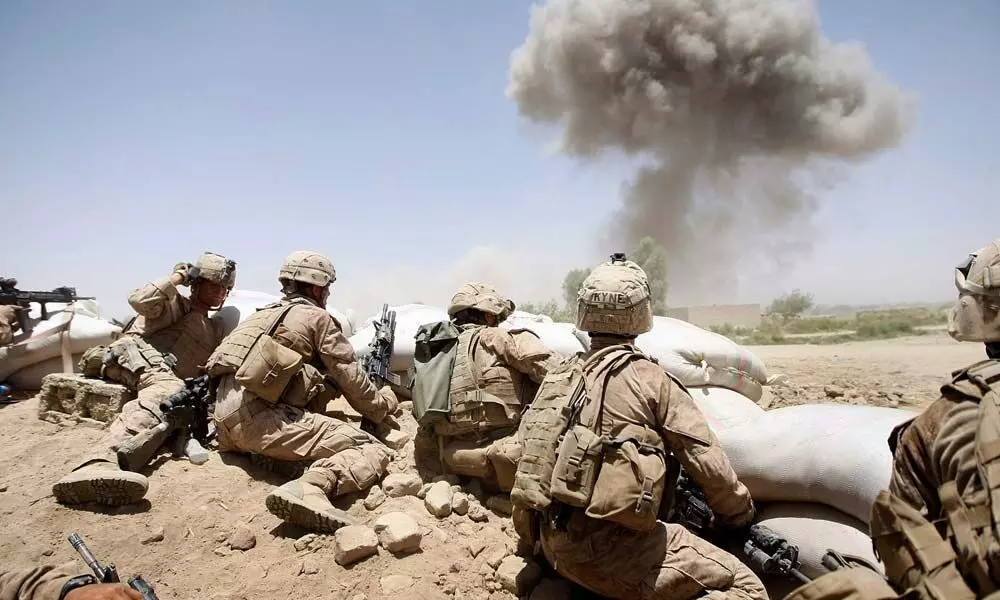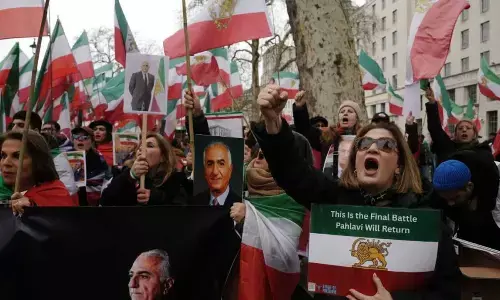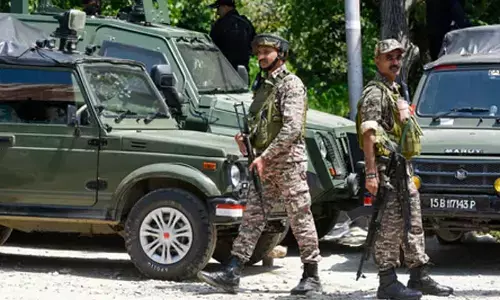Afghanistan is a never-ending war zone

Afghanistan is a never-ending war zone
Violent attacks in Afghanistan surged by 50 per cent over recent months even as the Kabul government and the Taliban launched unprecedented peace talks in September, a US watchdog warned Thursday
Violent attacks in Afghanistan surged by 50 per cent over recent months even as the Kabul government and the Taliban launched unprecedented peace talks in September, a US watchdog warned Thursday. Despite brief lulls during two temporary ceasefires over the summer, fighting has raged across the country as the Taliban launched devastating attacks on provincial capitals and security installations, with fears the violence may jeopardise negotiations. Attacks against Afghan forces and civilians were 50 percent higher in the three months to the end of September when compared to the previous quarter, the US Special Inspector General for Afghanistan Reconstruction (SIGAR) said.
"Overall enemy-initiated attacks this quarter were also characterized as 'above seasonal norms," SIGAR's quarterly report to the US Congress added. The watchdog reported 2,561 civilian casualties this quarter including 876 deaths, up 43 percent from the April to June period. This has often been said and the situation has not changed much. There is not a single way that peace could be restored in Afghanistan.
Recent attack on Kabul University is yet another example of the terror tactics that the Taliban play and Pakistan only rejoices the collapse of the notional peace in the battered and war ravaged country. Observers speculate about what kind of political arrangement, if any, could satisfy both Kabul and the Taliban to the extent that the latter fully abandons armed struggle. In any event, it remains unclear to what extent the U.S. withdrawal is contingent upon the Taliban holding talks with Kabul or the outcome of such talks.
A full-scale U.S. withdrawal and/or aid cutoff could lead to the collapse of the Afghan government and perhaps even the re-establishment of Taliban control. This was a well-known fact. Yet the Trump administration in the US would not heed just to make the President keep his word. The mess that Trump will be leaving behind in the world could be best illustrated by Afghanistan. No other country has suffered so much and so often thanks to the power play of countries like the US.
By many measures, the Taliban are in a stronger military position now than at any point since 2001, though many once-public metrics related to the conduct of the war have been classified or are no longer produced. The present report by SIGAR comes as scattered calls to boycott the ongoing peace talks have been raised following back-to-back attacks on education centres in Kabul claimed by the Islamic State group, but which some government officials insist were carried out by the Taliban. Little progress has been made in meetings between Afghan government negotiators and the Taliban since the talks started on September 12, with negotiations stalled over the basic framework of talks and an agenda still undecided.
Both sides have routinely accused each other of upping hostilities and killing civilians. Zalmay Khalilzad, the US envoy who negotiated a separate deal with the Taliban in February, has repeatedly warned that "continued high levels of violence can threaten the peace process and the agreement and the core understanding that there is no military solution" to the Afghan conflict. The Afghan blood is on everyone's hands, both that of the perpetrators and that of the spectators.










